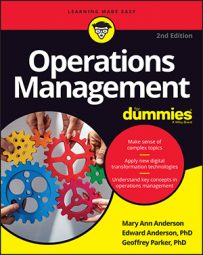Getting the most out of your outsourcing relationship depends on several factors. One obvious factor that operations managers need to consider is that the supplier needs to be financially stable so that it does not go out of business while working with you. A less obvious but still important issue is a candidate supplier’s familiarity with serving firms similar to yours in terms of geography, product requirements, and sales volume.
Lack of familiarity can create miscommunication. Sometimes, suppliers from one industry simply don’t have the technical capabilities to produce components for another industry.
An ideal outsourcing partner has some familiarity with your industry. Otherwise, you’ll likely spend a long time training the manufacturer about how to make your product properly. For example, imagine that a medical equipment company decides to outsource the production of a relatively uncomplicated measurement device to a toy manufacturer with significant experience in plastic injection molding.
The firm makes a mock-up of the device it wants the supplier to produce, and the supplier creates a product that looks exactly like it’s supposed to, only to discover that the device can’t perform its main function, which is precision measurement of air exhaled by a patient. Toy companies are all about a product’s external appearance, and our fictional supplier is unfamiliar with how to make precision measurement products.
Eventually, the toy company does a stellar job, but it takes literally thousands of hours of work by employees in both the buyer and supplier firms to overcome these issues. A supplier that’s familiar with the medical equipment industry wouldn’t need this time.
If a supplier firm needs to ramp up its volume significantly, then adjusting production levels takes time and investment to buy new equipment and hire new personnel.
When you find the right supplier, you want to stick with that supplier for the long haul. Switching from partner to partner to develop sophisticated products for your business is a recipe for disaster.

